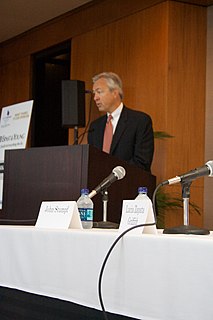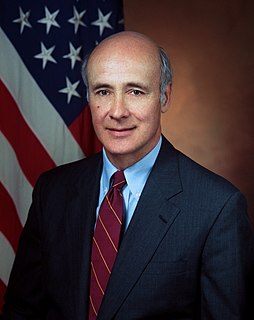A Quote by Chip Conley
Great leaders help their people see how they can directly impact the company's objectives and their own personal goals.
Related Quotes
Authenticity is about imperfection. And authenticity is a very human quality. To be authentic is to be at peace with your imperfections. The great leaders are not the strongest, they are the ones who are honest about their weaknesses. The great leaders are not the smartest; they are the ones who admit how much they don't know. The great leaders can't do everything; they are the ones who look to others to help them. Great leaders don't see themselves as great; they see themselves as human.
Most business leaders don't consider their own causality in the creation of problems. They fail to see that their company could have avoided breakdowns if they had acted differently. We tend to see problems as having been created by someone else or by the "economy". It's good to be a little introspective from time to time. Think about how your own behavior might have gotten your company into a problem, and how it may help to get you out.
Great leaders in our study treated their people like partners in the organization. That meant they created for their people a sense of connection by teaching them how their jobs impact the larger organization. And they showed them growth opportunities, how they can grow and develop with the company.
Leaders are active instead of reactive, shaping ideas instead of responding to them. Leaders adopt a personal and active attitude toward goals. The influence a leader exerts in altering moods, evoking images and expectations, and in establishing specific desires and objectives determines the direction an organization takes. The net result of this influence is to change the way people think about what is desirable, possible, and necessary. In other words, leaders are visionaries and managers operate within those established visions.
Let us not confuse objectives with methods. Too many so-called leaders of the nation fail to see the forest because of the trees. Too many of them fail to recognize the vital necessity of planning for definite objectives. True leadership calls for the setting forth of the objectives and the rallying of public opinion in support of these objectives.
Level 5 leaders are differentiated from other levels of leaders in that they have a wonderful blend of personal humility combined with extraordinary professional will. Understand that they are very ambitious; but their ambition, first and foremost, is for the company's success. They realize that the most important step they must make to become a Level 5 leader is to subjugate their ego to the company's performance. When asked for interviews, these leaders will agree only if it's about the company and not about them.
The best CEOs in our research display tremendous ambition for their company combined with the stoic will to do whatever it takes, no matter how brutal (within the bounds of the company's core values), to make the company great. Yet at the same time they display a remarkable humility about themselves, ascribing much of their own success to luck, discipline and preparation rather than personal genius.


































